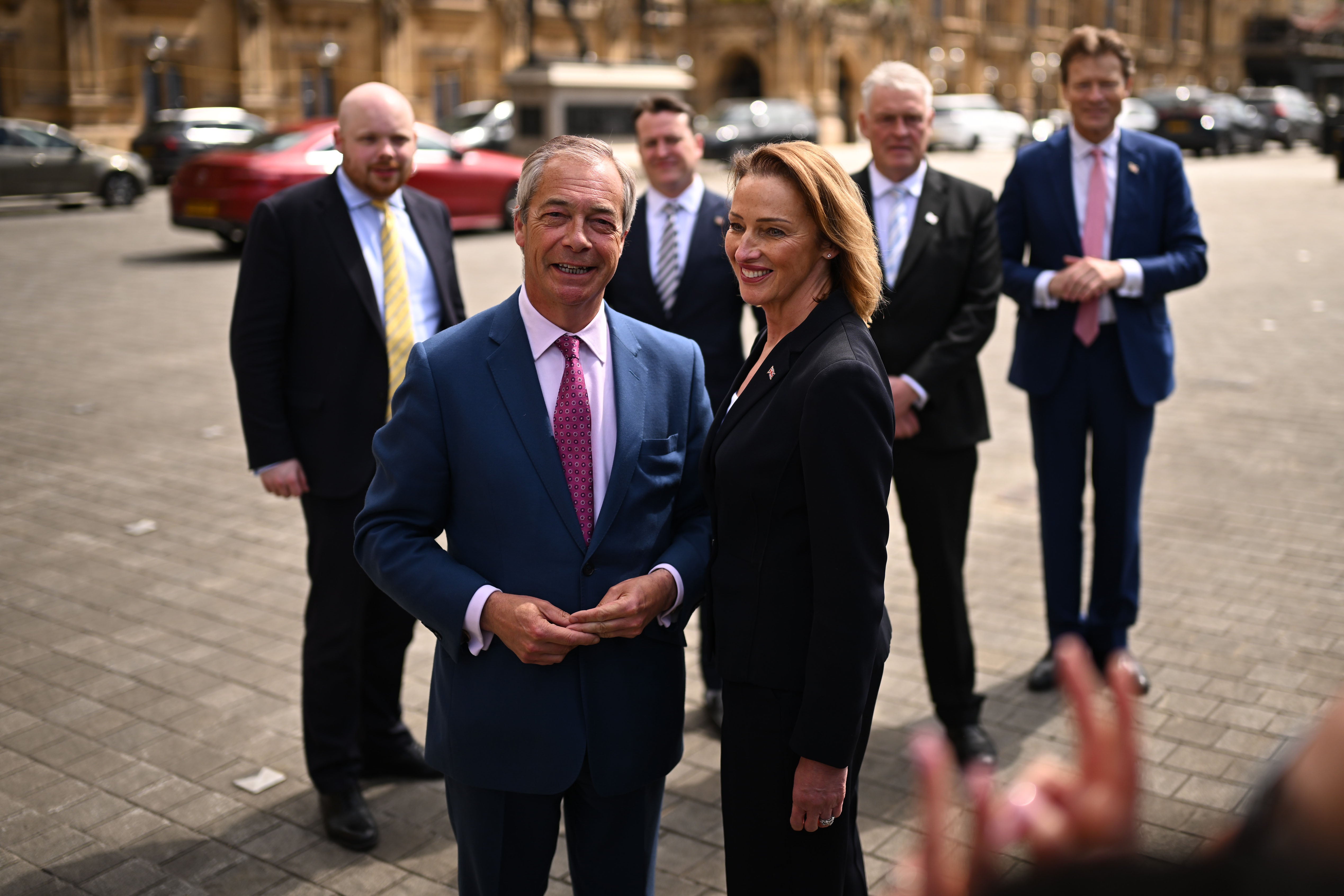The next Battle of Britain: How will Keir Starmer try to combat Nigel Farage?
Farage is riding high with Reform UK, which is now seen as Labour’s true opposition. Patriotism may be Starmer’s only solution, writes Andrew Grice

How will Keir Starmer try to combat Nigel Farage? By beating his exclusive, divisive nationalism with an inclusive, unifying patriotism.
Labour strategists plan to turn the next general election into a new “Battle of Britain”. Convinced that Reform UK, not the Conservatives, will be its main enemy, Labour will portray Reform as offering voters a better yesterday while Labour focuses on a positive, brighter future.
Pat McFadden, the Cabinet Office minister and one of Starmer's closest allies, told anxious Labour MPs at a grim post-mortem into the party’s poor local election results: “A new fight is taking shape... between our values and a nationalist politics of the right. It’s a battle for the very future and the heart and soul of our country.”
It's not as selfless as it sounds. It foreshadows a Labour campaign to encourage anti-Reform tactical voting at the next election. Labour will plead with disenchanted left-of-centre voters tempted by the Liberal Democrats and Greens to vote Labour to keep Farage out of Downing Street.
Starmer has his faults but is the right leader to dilute Farage's appeal by stressing Labour's own patriotism. Wrapping Labour in the flag grates on some in the party but it's authentic Starmer. His first party political broadcast began with: “I love this country” and it seems he has rarely performed without a union flag (or two) since.
He took a risk by deciding Labour's 2022 annual conference should sing the national anthem for the first time after the death of Queen Elizabeth II. Jeremy Corbyn was appalled; Starmer didn’t mind, as it demonstrated Labour had changed. Corbyn was perceived by voters as unpatriotic; his reluctance to blame Russia for the Salisbury poisonings returned to haunt him.

Last month Starmer became the first prime minister to hold a Downing Street reception to mark St George's Day. This week he held a street party to celebrate VE Day and announced trade deals "in the national interest" with the US and India (with another with the EU to follow on 19 May). It was interesting that Rachel Reeves hailed the two agreements as showing “Britain’s strengths” – not Labour’s – in navigating a changed world.
Indeed, Trumpworld as well as the Farage threat vindicates Starmer's patriotism. He will soon unveil a "national security strategy" outlining how Labour will raise defence spending, including a "defence industrial strategy" to replace the post-Cold War peace dividend with a "defence dividend" for British jobs. Starmer wants "security and defence" to be a "collective endeavour" and "national effort" like the 1945 Labour government's post-war recovery plan.
A more interventionist industrial policy, trailed at British Steel, will counter Reform's shift to the left on economic policy, which appeals to Labour's traditional working-class voters.
Farage, who wears union flag socks, needs to choose his patriotic words carefully. He was delighted when The Sun splashed on an opinion poll showing “Britain is broken,” which is seen by Reform figures as the party’s “new Brexit", with wide appeal when coupled with "Britain needs Reform". (Just as well when a majority of people think Brexit was a mistake, though Farage is rarely challenged by the media about that).
The public might think Britain is broken now but don’t like politicians running the country down. That is why Labour shied away from using “broken Britain” as a main line of attack ahead of last year’s election. In office, Reeves overdid the gloom as she tried to blame her admittedly rotten inheritance on the Tories. Now she smiles and is upbeat about the economy even when there’s bad news.
“Broken Britain” might work today but people might feel differently by 2029, underlining Labour's need to show tangible improvements by then.
The Tories should take note. They were once unchallenged as the patriotic party but, without many policies to articulate under Kemi Badenoch, they can look too negative as they attack the country’s ills under Labour.
Critics describe Starmer's patriotism as "performative", recalling that he once wanted to abolish the monarchy. His allies insist it's in his DNA, saying his small-town background in Surrey shows it's wrong to caricature him as a member of the metropolitan elite.
I think Starmer's patriotism is genuine and that he can dent Farage's appeal in a way another Labour leader could not. Voters can smell it when such a pitch is not for real and overdosing on it can make them wonder if it’s fake.
Yet patriotism is not a silver bullet for Starmer. Its benefit will be limited unless Labour persuades voters it has "secured Britain's borders" by the next election. That is why there's a lot riding on next week's white paper on immigration.





Join our commenting forum
Join thought-provoking conversations, follow other Independent readers and see their replies
Comments